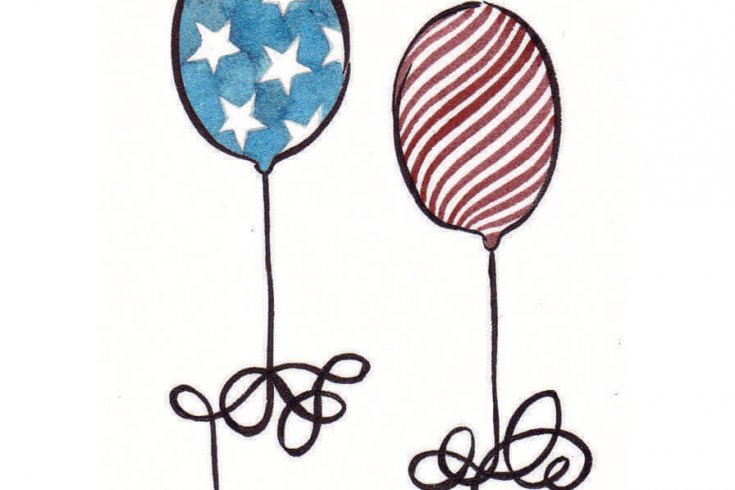For a party that first campaigned on accountability and transparency, the Conservatives have lately seemed somewhat averse to the concept. In the middle of investigations into the alleged torture of Afghan detainees, the government put off replacing the head of the Military Police Complaints Commission and delayed approving the legal fees of de facto whistleblower Richard Colvin. It installed a real estate lawyer with no criminal law experience as interim chair of the Commission for Public Complaints Against the rcmp. And Harper has, of course, prorogued Parliament twice in two years, first to save his government and then, seemingly, to shut down those irksome torture investigations.
But Ottawa’s testy relationship with accountability didn’t start with this government. Back in the spring of 1878, Alexander Mackenzie’s Liberals created the Office of the Auditor General, an independent body to inspect the government’s spending. The move won unanimous acclaim in the House of Commons, where, as Sonja Sinclair wrote in her 1979 history of the office, “Conservative and Liberal members almost competed with each other in praising [the bill].”
The government’s enthusiasm lasted all of two months, until Canada’s newly appointed auditor general, John Lorn McDougall, challenged the government over a raise it gave to a departmental clerk. The deputy minister of justice, Z. A. Lash, sent McDougall a letter scolding him for interfering in government business. “You have no right to enquire into the legal right of the government to do that for which they seek to expend the money which has been voted to them by Parliament,” Lash wrote. “It is out of the question that any such responsibility should be cast upon you.”
The Statue of Responsibility
Give me your liable, your conscientious, your fiscally accountable
Since 1886, the Statue of Liberty in New York Harbor has served as a monument to the values of life, liberty, and the pursuit of happiness. Now there are plans to erect a sister monument—the Statue of Responsibility—on the West Coast. The idea was first suggested by Viktor E. Frankl in his best-selling 1946 memoir, Man’s Search for Meaning, and since 1997 the Utah-based Statue of Responsibility Foundation has been raising the $300 million (US) required to realize Frankl’s vision. Resembling two clasped human hands—“a figurative representation of all races, genders, and nationalities,” according to the foundation’s website—the proposed 90-metre monument will include an observation deck, a gift shop, and two restaurants. It stands to reason that here in Canada such lavish spending would be deemed irresponsible.
The auditor general effectively ignored Lash’s letter, and the incident became, according to Sinclair, “the opening salvo in a battle which was to rage, off and on, between the Audit Office and successive governments.” It can seem like déjà vu: in 1965, as auditor general Maxwell Henderson was completing a report on wasteful government practices, the deputy minister of finance in Lester Pearson’s government sent him, apparently as a warning, a copy of Lash’s original letter. After consulting legal counsel, Henderson decided to ignore the letter, just as his predecessor had done.
McDougall’s ghost must have been smiling down from the parliamentary rafters when the Conservatives passed the Federal Accountability Act, their first piece of legislation and the genesis of the Parliamentary Budget Office, which was charged with providing parliamentarians with independent information on the government’s finances. But they neglected to specify in the act whether the budget officer could continue to issue reports when Parliament was out of session—an oversight that came back to haunt them after Harper prorogued Parliament in December. The officer, Kevin Page, announced that his office would continue to publish its reports, including a damning finding that Canada’s deficit was not going away any time soon.
Page became something of a folk hero. Unfortunately, however, his efforts alone aren’t enough to repair Canada’s accountability mechanisms, because the problem is systemic. For one thing, the nature of Page’s position means he can be fired on the whim of the prime minister. That’s an odd formula for accountability: by comparison, Page’s American counterpart, the director of the Congressional Budget Office, can only be removed by the legislature he serves.
While the US’s presidential system of checks and balances is different than our parliamentary one, American accountability nevertheless provides a contrast to our own. Last February, when Congress passed its stimulus package, it created an independent agency to publicize how the money was spent. Every three months, it collects and posts reports filed by more than 100,000 stimulus recipients, detailing exactly how the money was spent and where, and how many jobs were created as a result. The information is available on the web for public download.
By contrast, when Page asked the government last fall to provide information on how it was spending its stimulus dollars, John Baird, the minister for transport, infrastructure, and communities, obliged by blanketing him with 4,476 pages of documents—not electronic files but pieces of paper. In boxes. “The parliamentary budget officer has asked for a significant amount of information,” said Baird. “We’ve given him a significant amount of information.”
Ultimately, elected representatives—not solitary officials—are supposed to provide the final check on governments, short of the ballot box. In Parliament, as in Congress, a system of committees subjects government to the fine lens of informed scrutiny. In the US, those committees are backed up by as many as 100 dedicated staff apiece, the bulk of whom are experts in their fields. In Canada, parliamentary committees typically get one or two researchers apiece; additional staff must be paid for out of members’ office budgets. And the committees get nothing done whatsoever when Parliament is prorogued.
But more funding, and tighter rules against prorogation, wouldn’t by themselves make Parliament work better—at least, not this Parliament. “We have a Parliament that does not have a great deal of interest in holding people to account,” says Peter Aucoin, a professor emeritus in political science at Dalhousie University. “If our parliamentary committees right now had more staff, they’d probably be engaged in more partisan activities.”
In the end, the Conservatives have done the country a favour, by reminding us that our system of accountability and transparency is a work half finished. The opposition has promised to strengthen accountability if elected; that change would be welcome, but the current government illustrates that plans can change with the assumption of power. Which doesn’t mean we should stop trying.
Since 1886, the Statue of Liberty in New York Harbor has served as a monument to the values of life, liberty, and the pursuit of happiness. Now there are plans to erect a sister monument—the Statue of Responsibility—on the West Coast. The idea was first suggested by Viktor E. Frankl in his bestselling 1946 memoir, Man’s Search for Meaning, and since 1997 the Utah-based Statue of Responsibility Foundation has been raising the $300 million (US) required to realize Frankl’s vision. Resembling two clasped human hands—“a figurative representation of all races, genders, and nationalities,” according to the foundation’s website—the proposed 90-metre monument will include an observation deck, a gift shop, and two restaurants. It stands to reason that here in Canada such lavish spending would be deemed irresponsible.
This appeared in the May 2010 issue.




